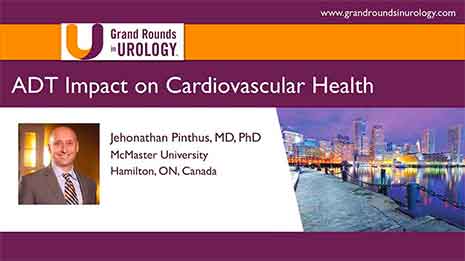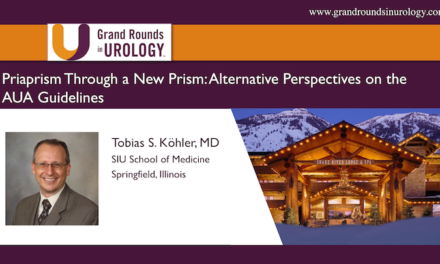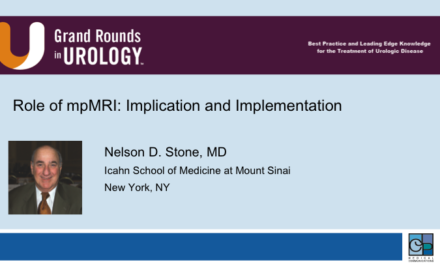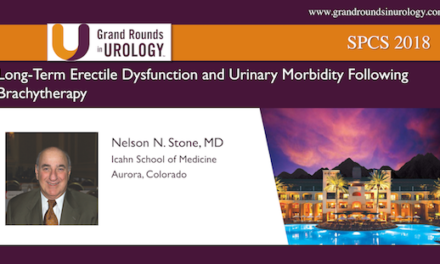ADT Impact on Cardiovascular Health
This lecture is associated with a free, online CME program. It is accredited for 1.5 CME credits.
Access the “Navigating the Adverse Effects of ADT” CME course here.

ABOUT THE AUTHOR
Dr. Pinthus is an Associate Professor in the Department of Surgery’s Division of Urology at McMaster University in Hamilton, Ontario. He is a surgical oncologist-urologist who completed his MD at the Hebrew University in Jerusalem, Israel, and his urology training at the Sheba Medical Centre at Tel Aviv University in Israel. He then completed 2.5 years of an SUO-accredited Fellowship in Uro-Oncology at the University of Toronto. Dr. Pinthus earned his PhD at the Weizmann Institute of Science in Rehovot, Israel, working on gene immunotherapy of prostate cancer.
He is heading a basic and translational research laboratory at McMaster University and his research interests relate to how patients’ individual host factors and metabolism affect prostate cancer growth and response to therapy. Dr. Pinthus has published more than 80 peer-reviewed papers and several book chapters. He is a member of the editorial board of European Urology, Prostate Cancer, and Prostatic Disease. Dr. Pinthus is the principal investigator on many distinguished research grants, including a $3.5 million Movember-Prostate Cancer Canada grant titled “Role of androgen deprivation therapy in cardiovascular disease - a longitudinal prostate cancer study (RADICAL PC).” This study is intended to prospectively address the potential link between prostate cancer in general and androgen deprivation therapy (ADT) in particular and an increased risk of cardiovascular disease.





